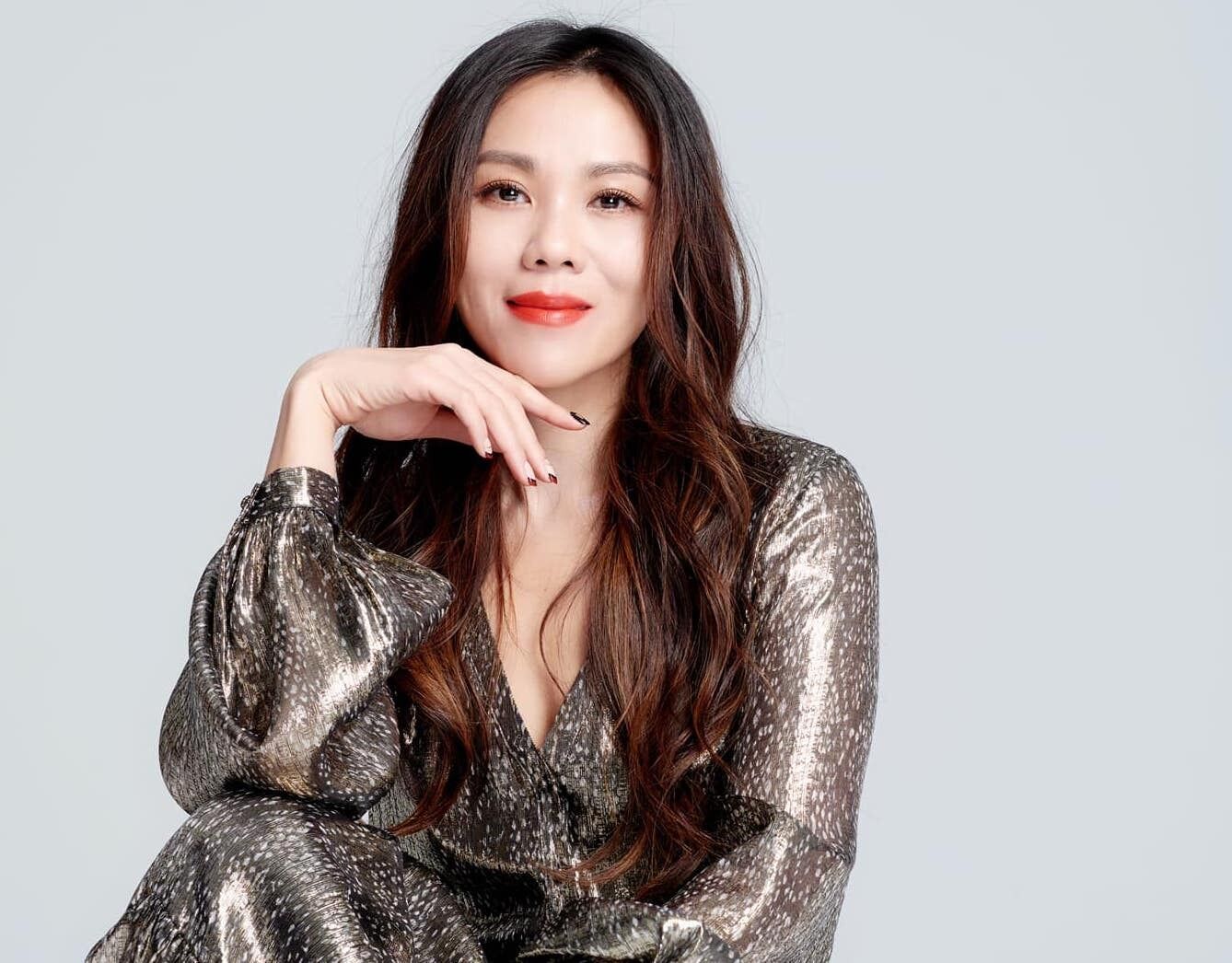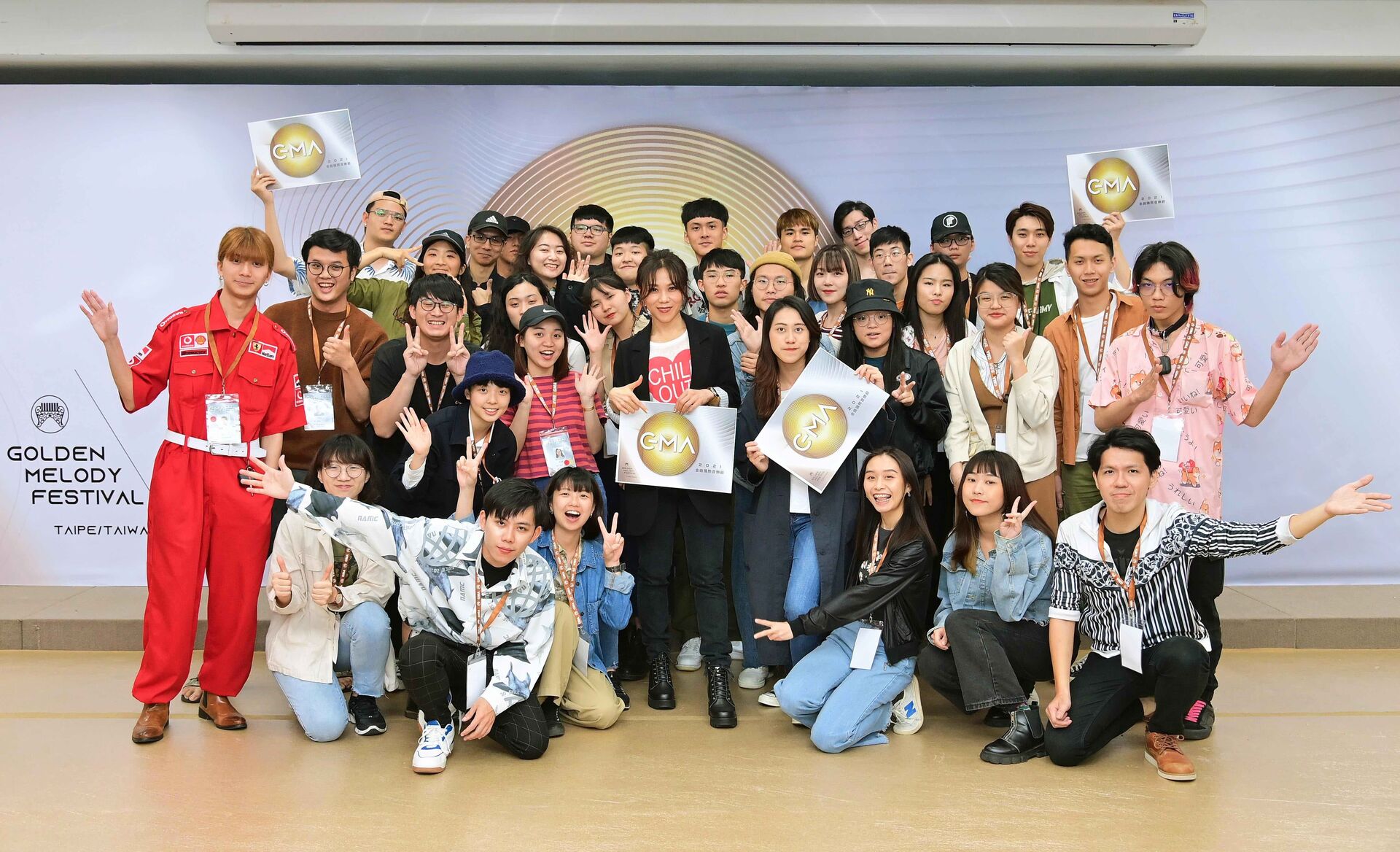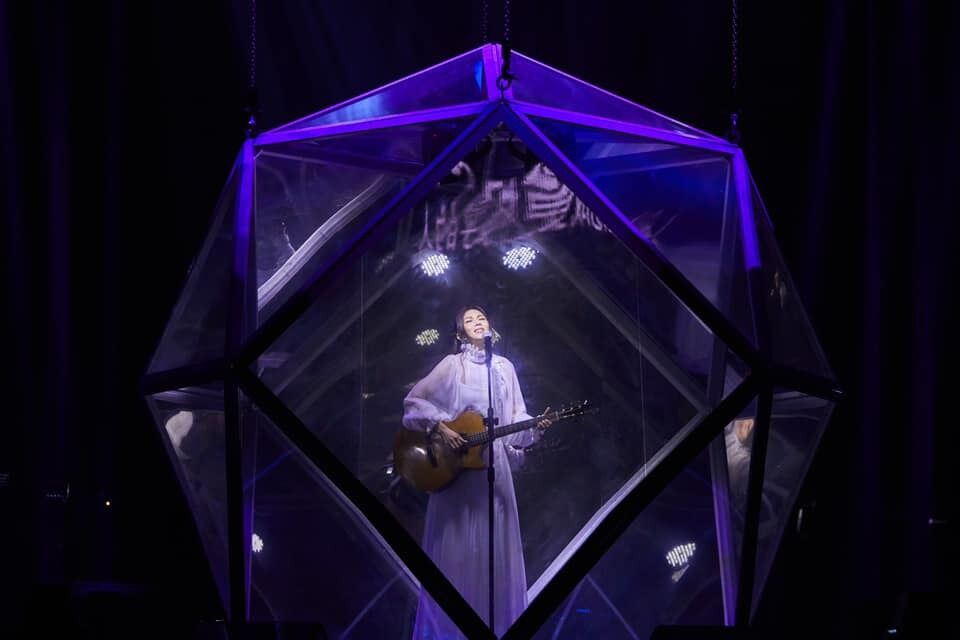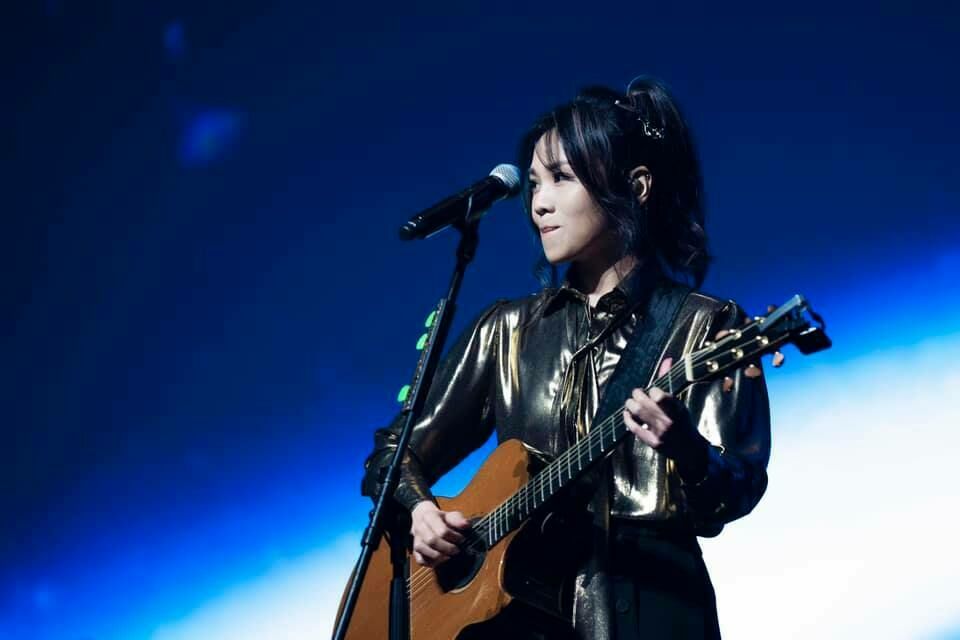To homegrown Mandopop singer-songwriter 蔡健雅 Tanya Chua, there isn't a right or wrong way to make music.
This is perhaps the biggest takeaway from the 46-year-old's remarkable musical journey, which serves as a shining example of what an artist who follows his or her heart can accomplish.
In her early years as a musician, it was Tanya's confidence in her own instincts that allowed her to create some of her "boldest and most creative" works although she had no knowledge of music theory. Later on in her career, the '我要給世界最悠長的濕吻 (Kisses For The World)' singer continued to embrace her individuality by unshackling herself from the need to make music that appealed to everyone.
"[I] learnt that what really matters is what and how you want to express yourself. In a world where opinions can easily turn into a war game online, artists can get sucked into what people think of their music and forget their passion and drive in the first place," shares Tanya, who is currently based in Taiwan.

(Credit: Tanya Chua Facebook)
As someone who enjoys the process of creating new music, the Golden Melody Award (GMA)-winning artist has also expressed herself in her work as a producer. Aside from her own music, she has helped to bring the works of several other artists to life, including an album by her hero, Na Ying.
She says: "I think you need to try and dig deeper within yourself to find things that you’re passionate about. And that would somehow make you a better and [more] discerning musician."
Today, Tanya is one of the artists responsible for shaping Mandopop's future. In April this year, she served as a lecturer at the 2021 GMA Occupying Academia, an initiative to nurture the next generation of musicians in Taiwan. There, she shared her story with her students and encouraged them to find new ways to express themselves.
In an interview with Hear65, Tanya talks about her experience of being a music mentor, how she created a unique voice for herself, and looks back on her formative years in Singapore.
Hi Tanya! You were recently invited to be a lecturer at the 2021 GMA Occupying Academia. What was the experience of being a mentor like? What was your initial reaction when you received the invitation?
I loved the experience. It was the first time after a long time due to COVID-19 restrictions that I got to see more than five people in the same room. [I was] very excited. We had just come off from my concert at the Taipei Arena, 給世界最悠長的吻 (Kisses For The World), and thought it was the perfect timing to share experiences and insights with students as we did quite a lot of re-arrangements music-wise. Re-arranging familiar songs was one of my favorite processes in preparing for live performances. So many new ideas and creativity can come out during these times with my musicians and I thought it was something worth sharing with the students to [encourage them to] think outside of the box.
You had previously guided budding artists as a coach on the reality series Sing My Song. Did this experience help you in any way while you were preparing for the GMA workshop? What kind of impact were you hoping to leave on your students?
Definitely. Especially on the ease of speaking (instead of singing) about music to a crowd, having a good flow of thoughts, and keeping in mind the important and constructive pointers without sounding too serious. Speaking about music can get quite technical and you don’t want to lose the audiences’ interest, thus we also prepared a few video excerpts from my concerts to explain how the ideas came to flourish. I hoped in some ways it would trigger some eureka moments in the students and help them find new unique ways of presenting their music.

(Credit: GMA)
At the workshop, you said: “There is no right or wrong in music, it’s open for discussion.” At what point in your career did you have this realisation?
Just like everything, everyone has their own opinion, taste, or sense in something that suits them. I learnt that you can’t please everyone or make them like your music from the beginning of my career. [I also] learnt that what really matters is what and how you want to express yourself. In a world where opinions can easily turn into a war game online, artists can get sucked into what people think of their music and forget their passion and drive in the first place. I once tried pleasing the masses by singing very commercial sad love songs written by other writers but ended up being so miserable as it did not reflect on who I truly was. I guess the point is, stop thinking about what’s right or wrong [and] just work from the heart.
Let’s talk about your journey as an artist, which you also share with your students. One of the challenges that you faced at the start of your career was having no knowledge of music theory. From your experience, why shouldn’t this deter aspiring artists from pursuing music? What’s the best way to overcome this hurdle?
I started writing songs with just an acoustic guitar, an instructional guitar chord book, and no clue in music theory. I just played all the chords that I knew how to play at that time and tried to come up with melodies that fit my randomly pieced together chord progression and quite frankly, those were the "boldest" and most creative songs that I’ve written. But of course, you need to have some sense of music and melody to make them sound right. Looking back at my earliest works (before I went to study music), I wouldn’t have come up with such chord progressions and melodies as they didn’t conventionally fit into the same key. Sometimes ignorance is golden. But most of the time, it does help to know some music theory, or if you’re fortunate to be born with relative or perfect pitch.
"I would say, don’t be scared of music theory, but don’t get stuck with theory."
The cool part about not knowing music theory is that you can break rules without knowing, just going by your own unique instincts and hopefully create some anarchic magic in your music (that sounds like music). But you would be stuck in not knowing how to communicate with other musicians when you want to play with them. Knowing theory helps and facilitates you in getting to an idea in your head faster than just trying to fiddle around. I would say, don’t be scared of music theory, but don’t get stuck with theory.

(Credit: Tanya Chua Facebook)
In your opinion, why is it important for artists to have their own style? How did you figure out what worked for you and what didn't?
Well, first of all, what would be the point of being an artist if you sounded like someone else? Uniqueness is how you sing, how you perform, the kind of music you create, the spirit and messages you put out in the songs… the list that makes a certain audience attracted to an artist goes on. There’s only so much room for interest in something that is deemed intriguing, and you don’t want to be ‘one of them’, [but] you do want to be ‘the one’, if it makes sense. If it’s generic, it’s easy to be passed on and forgotten. And in the music industry where the turnover is so high, you want your music to be remembered and have staying power instead of having a one-hit single.
I never wanted to sound like anyone else from the start. It seemed logical because that was how my instincts worked when it came to the music that I steered towards when I was young. I listened to artists who had a certain tone and timbre of voice that would just touch my heart. When I started writing and singing, it did take a while for me to figure out my own voice and the materials that I wanted to write. It helps that I write my own music because that in itself is something that comes from personal experiences and insights. That’s the beauty in music for me.
View this post on Instagram
Aside from writing and singing, you’ve also produced (for yourself and for other artists) and ventured into music publishing and management. What are some of the advantages of diversifying one’s skill set?
It has been said to never put all your eggs in one basket. I think as a musician, it’s always good to try to touch base with as many aspects and possibilities, to discover what you are good at or feel inclined to. I started out just writing songs on an acoustic guitar. I never thought that one day I would start producing my own album and produce for other artists. But that came about because I loved the process of creating, bringing a song to life from scratch, not just singing. The technical side of music — working with different voices, the arrangements, the mixing process — perhaps that would not be everyone’s cup of tea, but I think you need to try and dig deeper within yourself to find things that you’re passionate about. And that would somehow make you a better and [more] discerning musician.
"I think as a musician, it’s always good to try to touch base with as many aspects and possibilities, to discover what you are good at or feel inclined to."

Tanya at a Tencent Music Entertainment (TME) Live virtual performance in 2020 (Credit: Ella Li)
You mentioned in an earlier interview that you’re proud of your Singaporean roots. Have your experiences of growing up in Singapore and performing on stages of numerous sizes (from cafes and pubs to concerts and even the NDP) here had any impact on your music?
You are what you eat, how you live and experience. Growing up in Singapore, we had such diversity in culture and music. Those were definitely some of the key elements that laid my foundation and style in music that I later created. As a child, I was exposed to so many kinds of music in various languages and styles. In school, I took part in ‘Xinyao’ singing competitions. Later on, in my polytechnic years, I sang western covers in pubs. Those helped me out so much in learning about vocal technicalities and styles. Singing for the National Day Parade (NDP) exposed me to what it felt like to stand in front of a national audience, [and] also [aided me in] conquering stage fright lol. I cherish every moment on stage in Singapore during my formative years in music as it really helped me as a musician and performer.
What are some key lessons from your career in Taiwan (as a singer-songwriter, producer, and now GMA Occupying Academia mentor) that musicians/the music industry in Singapore can also learn from?
First of all, if we’re talking about a career in Chinese music, as a Singaporean I cannot stress enough the importance of language fluency. I do understand we have a "unique" way of speaking in Mandarin (Chinglish, Singlish, or what have you), but it is rather helpful if you can express yourself well and coherently in Mandarin. Also learn to speak your mind and have a stance. When I first started out in Taiwan, my Mandarin was so bad that I kept having frozen moments during interviews. I felt incompetent and uninteresting as an artist as I could not relay anything and was afraid to express my thoughts.
"To be heard and felt in music, you need to find something that triggers emotions in people."
Growing up in Singapore, we were taught to be polite and courteous and law-abiding (not a bad thing though), but somehow polite and nice just doesn’t cut through. Not to say that you need to be a loud and abrasive person, but to be heard and felt in music, you need to find something that triggers emotions in people. I guess the whole point is, don’t be afraid to be yourself and speak up (in music).
View this post on Instagram
In your opinion, what can Singaporean musicians bring to the international music scene?
In this digital era, everything is possible. But to be heard and seen internationally, even I find it challenging. Everyone has the potential and the ability to make good music, but to be picked out and noticed is another. So I would say just do what you love, do it well, enjoy the process of making music, and have fun!
Finally, is there anything that you’d like to say to your friends, family, and fans back in Singapore?
Miss you all! Stay safe, wash your hands, wear your masks, keep socially distanced. Take care of your friends and loved ones and stay positive. We are all going through a rough patch with COVID-19, [but] we’re in this together so stay united!
Listen to Tanya's 2018 album 我要给世界最悠长的湿吻 (Kisses For The World) and leave it a review here.



